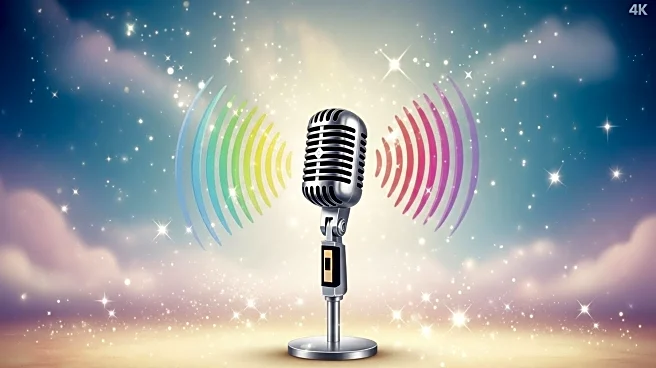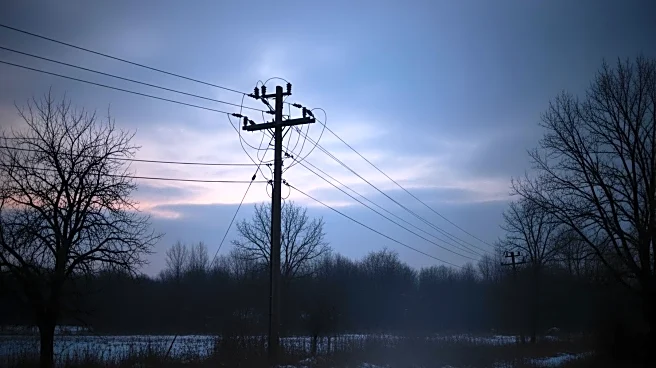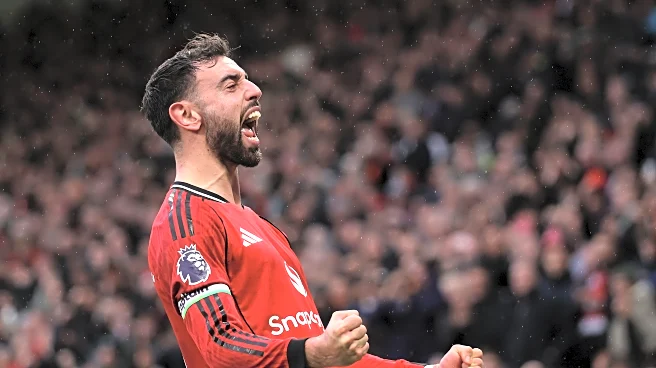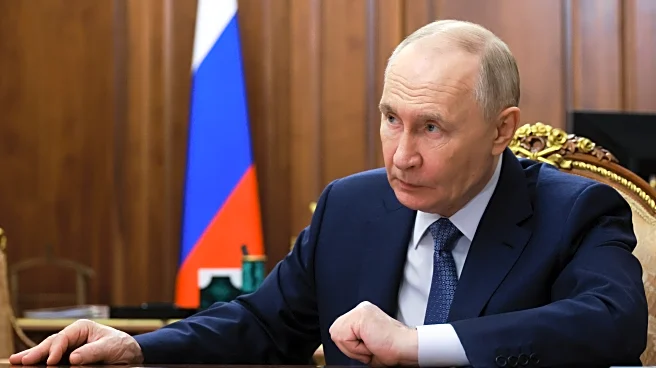What's Happening?
Walt Disney Co. recently suspended 'Jimmy Kimmel Live!' following comments made by Kimmel regarding the suspect in the shooting death of conservative activist Charlie Kirk. The suspension lasted six days before Kimmel returned to the airwaves, sparking discussions about free speech and corporate influence in media. The incident has raised concerns among Hollywood writers, particularly those in comedy, who fear increased censorship and government intervention in creative content. President Trump criticized TV networks, including ABC, labeling them as biased and suggesting their licenses should be revoked. This has led to a climate of fear and caution among writers, who are now more hesitant to incorporate certain elements into their stories.
Why It's Important?
The suspension and subsequent return of Jimmy Kimmel highlight the ongoing tension between media companies and political figures, particularly concerning free speech and censorship. The incident underscores the precarious position of writers and creators in Hollywood, who face pressure from both corporate interests and government entities. The broader implications for the entertainment industry include potential self-censorship and a chilling effect on creative expression. As media conglomerates navigate these challenges, the livelihoods of writers and performers are at risk, along with the industry's ability to serve as a platform for diverse voices and perspectives.
What's Next?
The controversy surrounding Jimmy Kimmel's suspension may lead to increased scrutiny of media companies and their relationships with political figures. Writers and creators in Hollywood are likely to continue advocating for free speech and resisting censorship. The incident could prompt discussions within the industry about the balance between corporate interests and creative freedom. As political tensions persist, media companies may face pressure to align with or resist government narratives, impacting content creation and distribution.
Beyond the Headlines
The situation with Jimmy Kimmel reflects broader societal debates about free speech, censorship, and the role of media in shaping public discourse. The incident may contribute to a cultural shift where comedy becomes sharper and more confrontational as creators push back against perceived restrictions. The historical context of political satire as a tool for challenging power suggests that comedians and writers will continue to find ways to express dissent and critique authority, despite external pressures.











